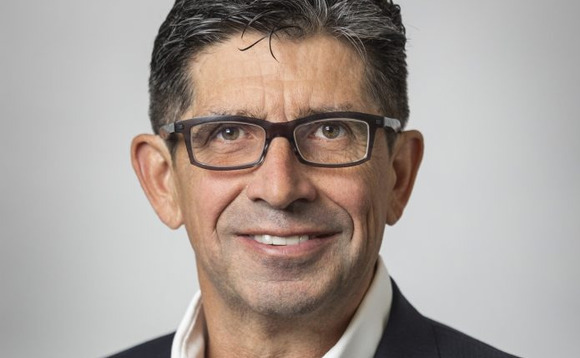
Fund focus: Australia's Next thrives under the radar

Next Capital claims to have relatively free rein in Australia’s underpenetrated lower middle market. Dedication to the opportunity set underpinned a painless fundraising process for its latest vehicle
Australia-based GPs raised a record AUD 4.5bn (USD 3.1bn) for growth and buyout strategies in 2022. Only one final close fell in the AUD 200m-AUD 500m range, with healthcare specialist Heal Partners collecting AUD 200m for its debut vehicle. Palisade Investment Partners also secured AUD 400m in the first close of an impact fund without specifying the overall target.
About AUD 1.4bn has been raised across six growth and buyout funds in 2023 to date, and the quantum saw a continued void in the smallish mid-sized part of the spectrum.
It highlights Sydney-based Next Capital as part of a rare breed: a generalist, buyout-focused GP that has not been tempted to stray from its lower-middle-market strengths by pushing past AUD 500m. Last week the firm closed its fifth flagship fund on AUD 375m, beating a target of AUD 350m.
"We don't want to raise bigger and bigger funds. We're really concentrating on this part of the market, where we're well known," said John White (pictured), a founding partner at Next.
"The Australian middle market has very much consolidated over the last five to six years, so there aren't many players with funds around AUD 300m in size. It's a target-rich environment, so I think LPs were excited to get exposure to a manager that's been around for 20-plus years and is staying focused on that lower mid-market space."
This is first time since Fund II that most of capital has come from Australia. Funds III and IV closed on AUD 256m in 2016 and AUD 275m in 2019, with just over half in each vintage raised from international investors. White noted that there was no decline in overseas interest but a ramp-up in local appreciation for the asset class.
"Family offices and high net worths have recognised the importance of private equity in a balanced long-term portfolio. You're seeing a lot of those groups coming into funds at good cheque sizes and reasonable volumes over recent years," he said.
Early momentum was established by returning investors Vantage Asset Management, Roc Partners, superannuation fund CBUS, and MLC Wealth. They were joined by newcomers including Australian high net worth individuals and family offices, European family offices, and an Asian fund-of-funds. These were predominantly longstanding contacts.
LPs were cheered by a clutch of recent exits for pandemic-resilient businesses. Notably, mini-golf company Funlab was acquired by TPG Capital in early 2021, and data centre operator Iseek was picked up by Amber Infrastructure later that year, generating a more than 4x return.
Most recently, New Zealand transport operator NZ Bus was sold to the segment's regional leader, Kinetic, for almost NZD 400m (USD 254m). Next, which had previously made at least two bus investments, acquired NZ Bus in late 2018 for about AUD 230m.
"We really had a good feel for what [NZ Bus customers] needed in terms of reliability of scheduled services and efficiency, as well as the delivery of electrified buses," White said, flagging Next's previous success with New Zealand-based GoBus. "So, we were able to move forward very quickly and deliver what was at that stage the southern hemisphere's largest fleet of electrified vehicles."
NZ Bus was sold in mid-2022, marking an approximately 4.5-year hold; White considers three to four years the most appropriate time horizon for the lower middle market. Target companies are generally sized in an enterprise valuation range of AUD 50m to AUD 200m, all Australasian. Control is a must, usually 51% to 80% stakes.
Fund V has made two investments to date. It committed AUD 76.5m to Country Care, a company that provides medical equipment to allow elderly and disabled people to live in their homes rather than institutions. The second deal came last month with a take-private of holiday accommodation manager Alloggio Group at a valuation of AUD 48.2m.
Alloggio is interesting from a sector targeting perspective given Australian government data frequently ranks accommodation as the hardest hit industry in a longstanding domestic labour shortage. Indeed, Next's final bid for the company had been revised down to reflect a weaker earnings outlook.
"Skills shortages and inflation in terms of rising input costs across the board has certainly been a big issue over the last couple of years, but we're starting to see some of the pressure come off that," White said, adding that although Alloggio's model does not require a big staff, Next remains interested in segments that do.
"We're very happy to continue to look at people businesses, but we are mindful of the skills shortage when we're working on what we need."
Latest News
Asian GPs slow implementation of ESG policies - survey
Asia-based private equity firms are assigning more dedicated resources to environment, social, and governance (ESG) programmes, but policy changes have slowed in the past 12 months, in part due to concerns raised internally and by LPs, according to a...
Singapore fintech start-up LXA gets $10m seed round
New Enterprise Associates (NEA) has led a USD 10m seed round for Singapore’s LXA, a financial technology start-up launched by a former Asia senior executive at The Blackstone Group.
India's InCred announces $60m round, claims unicorn status
Indian non-bank lender InCred Financial Services said it has received INR 5bn (USD 60m) at a valuation of at least USD 1bn from unnamed investors including “a global private equity fund.”
Insight leads $50m round for Australia's Roller
Insight Partners has led a USD 50m round for Australia’s Roller, a venue management software provider specializing in family fun parks.







